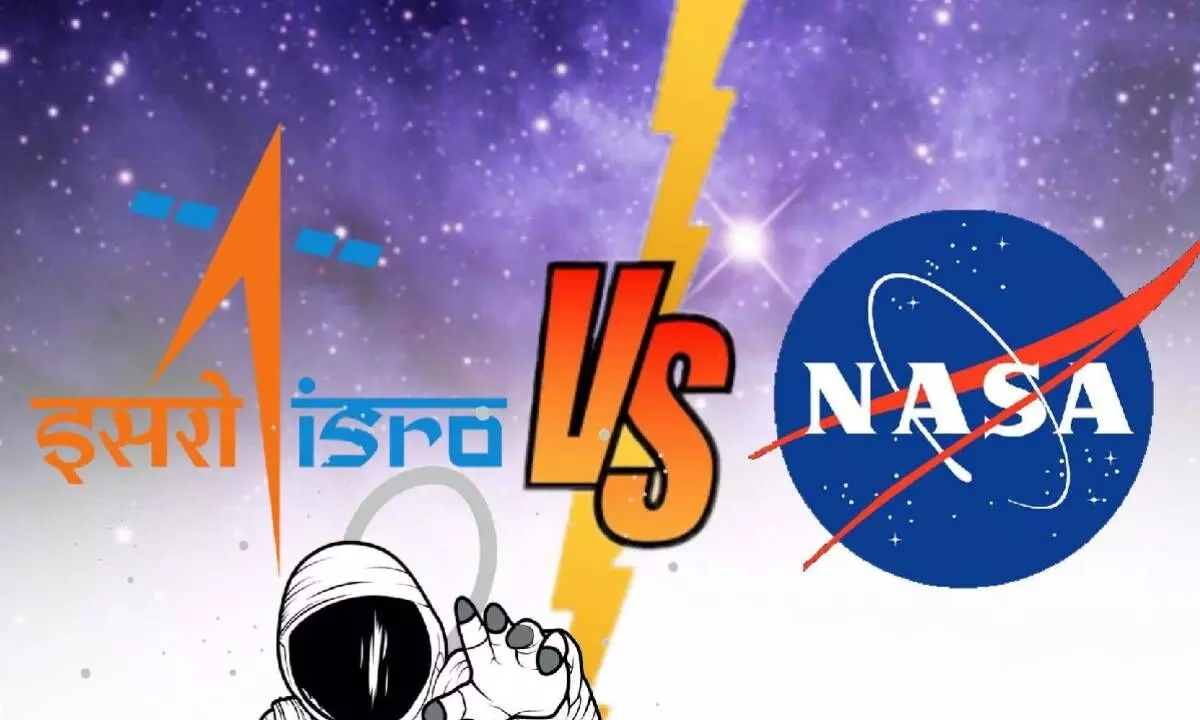There's need to give Indian scientists their due rewards
The country’s most brilliant minds go abroad, get preferred jobs and handsome remuneration
image for illustrative purpose

One of the highlights of India’s successful moon mission, Chandrayaan 3, has been the relatively low cost of the entire venture. Elon Musk famously declared that it cost less than the budget of science fiction feature film ‘Interstellar’. The irony being, of course, that the movie depicted a man’s journey through the galaxies. Chandrayaan 3 is estimated to have cost $75 million while the Hollywood film needed $165 million to be completed.
This has sparked much discussion about the ability of the Indian space program to achieve as much as other countries but at much lower expense. The reasons cited by scientists of the Indian Space Research Organisation (ISRO) for such capability include reliance on indigenous components as far as possible and being innovative in tackling problems. For instance, taking a longer and slower route to reach the moon rather than opt for the speed due to higher propulsion of the failed Russian Luna 25. A third factor is also often mentioned and that is, the cheaper cost of manpower resources. In other words, scientists and engineers employed by ISRO are paid much less than their counterparts abroad.
Former ISRO chairman G. Madhavan Nair has said in an interview that the wages paid to scientists and other staff in the space program is hardly one-fifth of what is given globally to people in similar positions. While this is being mentioned as a positive aspect of India’s space program, the fact is, it shows the lack of support being given to the scientific community in this country. Instead of trying to pay the highest possible remuneration to our scientists, the aim is to merely provide the same salaries and perquisites as to bureaucrats. In most cases, bureaucrats are better paid than others in the technical sectors of government agencies.
The relatively low level of remuneration to those in the scientific field reflects the abysmally low spending on research and development in this country. A study carried out last year by Niti Aayog and the Institute of Competitiveness found that India’s spending on R&D is among the lowest in the world. It is estimated at about 0.7 per cent of GDP. The global average is about 1.8 per cent. Countries in BRICS also record higher expenditure at 1.2 for Brazil, 1.1 for Russia, 2.4 per cent for China and 0.8 per cent for South Africa. Developed countries like the U.S. and Sweden spend 3.2 and 2.9 per cent respectively.
If India seeks to find a place for itself at the high table of the most advanced technological countries, this situation will have to change. Currently, the country’s most brilliant minds go abroad to seek employment. The reasons are obvious. It is in these distant locations that they are given both the freedom to work on their choice of subjects as well as provided enough income to support their families. Some reports say that almost a third of scientists in NASA come from India. On the one hand, it is a matter of pride that the Indian diaspora is acquitting itself so well abroad, while on the other hand, there should be concern over the failure to retain such talent within the country.
A major lacuna in the scientific establishment in this country has been the failure of both the public and private sector to invest in R&D. The government agencies have been doing commendable work with limited resources, witness the great leaps taken in the field of agricultural research by the specialised agriculture universities. But the rewards for those involved in such path-breaking work are limited to government salary scales or the odd award.
The private sector has also relied largely on research done in western countries rather than seek to invest the huge amounts needed to achieve real scientific breakthroughs. There are, no doubt, notable exceptions. These include the vaccines being developed by domestic ventures like Bharat Biotech as well as enzymes patented by Kiran Mazumdar Shaw’s Biocon. The broad swathe of corporates, however, takes the safer and cheaper route of relying on technologies developed abroad.
As far as the government is concerned, there is light on the horizon in the space sector as the private sector is now being allowed into operational aspects. Many start-ups are already reported to have taken the plunge on the operational side. The aim is to leave only research and design with ISRO. The question is, will this involvement of the private sector lead to enhancing the status of the Indian scientific community. It could help but in the public sector, it needs to be delinked from the bureaucracy. Special terms and conditions need to be provided to scientists that will ensure harmonious working conditions. They should be given remuneration in keeping with their special qualifications. Our scientists have shown that even with comparatively lower wages, they can compete with the best in the world. It is high time we begin to give them the rewards that they and their achievements richly deserve.

